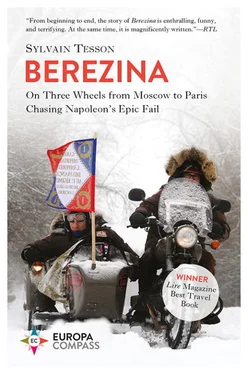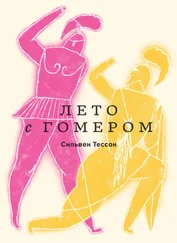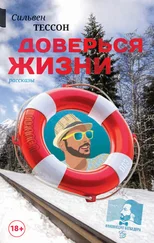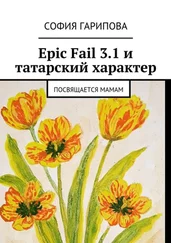She was waiting for us at the foot of the statue, in her fur coat. I’d met her in Moscow, when she managed the network of Alliances Françaises in Russia. Currently, Mireille Cheval had been posted to Poland and was all gloomy in the plain, homesick for Russia. She stood out in the diplomatic corps. Her personality and generosity made her unsuitable for a career on the carpets of chancelleries.
I don’t know if she has kept a happy memory of her sidecar tour through the streets of the city. The disadvantage of the “monkey” position on a Ural is the fact that it’s low down, cramped, and cold. The sense of being imprisoned in an ice coffin and skimming the road at axle and carbon dioxide discharge level doesn’t suit everybody. Mireille didn’t complain and invited us to the Russian dinner she had prepared at her home. A Russian dinner consists in slowing down the ravages of vodka by swallowing an onion, some dill, and a small herring.
“Mireille, for all our affection, do you know why we couldn’t possibly not come to see you?”
“No,” she said.
“Your name, Mireille. Mireille Cheval!”
“It’s wonderful,” Goisque said.
Horses. They were the great martyrs of the Retreat. They were killed through overload, skinned alive, eaten raw, either straight from the carcass or quartered and braised at the end of a saber. And they were not even gobbled down respectfully away from the sight of live animals. Did anybody think how a horse might feel before the spectacle of a congener’s flesh dripping on a spit? Isn’t the prospect of being eaten the absolute dread of evolution?
Nobody has celebrated the 1812 horses in correct proportion to their suffering. The men who fell on the battlefield have been glorified. There are monuments to commemorate their courage. Books telling their exploits. Streets and children bearing their names. But what about the animals? What are they entitled to? Nothing. Except perhaps to be taken into account by painters. The paintings that represent the disaster of 1812 give particular focus to the meat. How come painters were so interested in equine martyrdom?
Was it for moral reasons? Perhaps. If there’s any innocence mowed down by war, it is that of animals: they would have gladly avoided the violence of men.
For aesthetic reasons? Almost certainly. There is tragic beauty in an emaciated horse, lying on a snow-covered field, the grace of someone flayed.
For spiritual reasons? Definitely. The death of a horse is a supremely painful sight because it takes place in silence. The silence of animals is the double expression of their dignity and of our dishonor. We humans make such a racket… Painters, masters of silence, perhaps felt that the mute agony of horses was a subject destined for their art. Brushes dipped in light and contemplation took upon themselves the funeral oration to horses, which no one had thought of writing.
There is a painting by Édouard Bernard Swebach, on display at the Musée des Beaux-Arts in Besançon. It has a cavalryman sitting on the croup of his horse lying on the ground. The man looks desperate. He’s looking at his boots. He knows he won’t go far. Behind him, there’s a column of wretches trailing on the horizon. And yet what is striking is the horse. It’s lying on the black ice. Dying—perhaps already dead. Its head gently resting on the snow. Its body a reproach: “Why did you bring me here? You, Men, have failed, because not one of your wars has been an animal war.” At the beginning of the war the French owned about a hundred and fifty thousand animals: a hundred thousand draft horses and forty-five thousand mounts. The Russians had more or less the same. Of these three hundred thousand animals, two hundred thousand died during the first six months of the campaign.
“Mireille, do you know Gouraud?” Goisque said.
“Jean-Louis Gouraud, the writer?”
“Yes, he said that the Franco-Russian war was ‘the biggest equine slaughter in History,’” Goisque said.
“In 1812, the Russians invented a word to mean rot ,” I said to Mireille.
“I know,” she said.
“What?” Goisque said.
“It’s from the French word cheval . Pronounced chval. ”
“ Chval ,” Goisque echoed.
“Not at all, I think it’s delicious,” Vassily said, having only heard the Russian word, and dipped his onion in the pot of cream.
“What about Napoleon?” Mireille said. “Was he a good horseman?”
“From a strictly academic point of view he wasn’t,” Goisque said. “Not the kind of guy who’d perform a volt at a Spanish step in a Viennese riding school with his shagreen-gloved little finger raised. There’s a funny description by Odeleben: ‘Napoleon rode like a butcher. During a gallop, he would rock forward and sideways, at the whim of his mount. We know that more than once, he lost his stirrups.’ On the other hand, he was inexhaustible. Here’s what Colonel Jean-Baptiste Vachée says: ‘We saw him ride in five hours, at fifteen miles an hour, the road from Valladolid to Burgos. […] He was not only tireless, but a brave horseman, he rode recklessly.’”
“And listen to this! De Caulaincourt says,” I grabbed my copy of the Memoirs.
“There they go again with their readings,” Vitaly said. “It’s like being in church.”
“‘The Emperor would get on his horse by night or day, without telling anyone.’”
“He would have liked you, Mireille,” Goisque said. “He had a sense of names.”
DAY EIGHT.
FROM WARSAW TO PNIEWY
We looked in vain for the Hôtel d’Angleterre in Warsaw, where the Emperor had stayed. It wasn’t there anymore. We had fallen back on furnished accommodations in the city center and, in the early morning, were in the process of repairing coils damaged by the salt spread over the roads, when an embassy press officer named Alain, sent by Mireille, turned up. We told him about our retreat, he took notes, we started the engines and, while the cylinders were warming up, since our new friend seemed eminently friendly, I asked, “You haven’t always been in diplomacy, have you?”
“No,” he said.
“What did you use to do?”
“Philosophy.”
“What was your subject?”
“Berkeley,” he said.
“The university?”
“The thinker.”
“Ah.”
“Do you know him?”
“No.”
“He was Irish. 18th century,” he said. “The concept of immaterialism was his idea. That the world is the sum of our opinions about it.”
“Like Schopenhauer?”
“Even better! It’s not just a question of representation, but of a collection of ideas. Things don’t exist except in as far as they are perceived.” [9] Berkeley (George), A Treatise Concerning the Principles of Human Knowledge , 1710.
“Are you saying that Goisque doesn’t exist per se ?” I said.
“Mr. Goisque exists because you perceive him. You, your motorbikes, this bicorn, there’s nothing to prove that they are no more than a beam of information interpreted by your senses.”
“I love it, it’s so beautifully Shakespearean,” I said. “I’ve always known that this life was a grotesque illusion.”
“Besides,” Goisque said, “ever since Moscow, we’ve been indulging in a big game, something built by our minds.”
“Your big game is more interesting than the maneuvers of many of the people I frequent, who take themselves very seriously, and whose gravitas is just the sullenness of prigs.”
It was bitterly cold when we left Warsaw, and I wondered whether, had Berkeley frozen to the bone on a damn Ural, he would have perhaps reconsidered his wild imaginings about the nonexistence of phenomena. Funny how freezing your butt off cures you of speculations. The road followed the rhythm of the trucks: the shoulder was populated by garages, service stations, drivers, and lodges. The snow was an appropriate shroud for this country of battles. There must be quite a few skeletons in this favorable compost. History had crushed this country to the point of flattening it. We left Kutno at our rear, and followed, give or take a verst, the path of the sleigh. This morning, the cold was an enemy who’d learned all the techniques of an infiltration commando. The motorbikes were purring steadily at fifty miles an hour. Everything was in order, the trees planted straight. By the end of the afternoon, we had covered a hundred and eighty-seven miles, and gone past Poznań. The snow began to fall without any consideration for motorcyclists. Within an hour, the road was an ice rink. A few thirty-three-ton semi trailers slid across the highway and blocked the traffic toward Pniewy, northwest of Poznań. Tricycles had their advantages: we were the only ones able to get ahead without difficulty along the emergency lane. By evening, we decided that the flakes were falling too thick, so we stopped at a motel kept by a peroxide-blond Ukrainian who seemed to share with the road the company a large number of truck drivers.
Читать дальше












